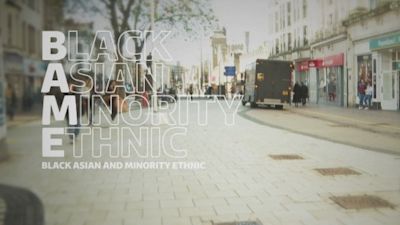Black, Asian and minority ethnic: What does the term 'BAME' mean to the people it describes?

By ITV Wales reporter Charanpreet Khaira
People from black, Asian and minority ethnic backgrounds have shared their views about the term BAME with ITV News, with some saying it excludes other groups.
Standing for Black, Asian and Minority Ethnic, the term is often used by governments, in public policy, and in official statistics such as those published by the ONS.
The acronym only became a common part of the English language in the 90s, after calls for Asian representation in the preexisting 'BME' - Black and Minority Ethnic.
But some have argued that BAME excludes other, "disadvantaged" groups in society, including those in the Gypsy, Roma and Traveller communities.
Being a BAME journalist
I am from a BAME background. That means I fit into the category of being Black, Asian and Minority Ethnic.
In reality, I am not sure that’s how I would choose to describe myself. I’m Indian - and I can’t think of many occasions where I would call myself BAME.
And yet it’s a term I use in my journalism all the time. I’ve reported about the fact that BAME people have been disproportionately hit by the Coronavirus pandemic, about BAME representation in Welsh schools, and about risk assessments for BAME workers.
So, when different members of the community contacted me to express their views about the term BAME, I decided it was time to find out more.
I spoke to Professor of Sociology and Immigration, Sin Yi Cheung from Cardiff University to find out more.
She told me that “BAME is a collective term or label that policymakers, governments, businesses use as an acronym to represent anyone who is non-white…. And before that, most people were just called immigrants.”
What are some alternatives to the word BAME?
Conversations around race are nothing new. But the words we use to describe them have changed over time.
Some people prefer to be called ethnic minorities, but others disagree, saying that people of colour are actually the global majority worldwide.
Others like the term non-white, as Andrew Ogun, a young Black Lives Matter campaigner described to me.
"If we're talking about several different ethnic minorities who experience similar or some levels of discrimination, just use the term 'non-white'."
"But that is not a perfect solution, because that has its own complexities. You're not going to get a term that everyone is universally happy with," he added.
However, some people find ‘non-white’ negative, as it suggests that white is the norm.
In the 80s and 90s, the work Black became popular as a way of describing all people of minority ethnic backgrounds.
It was a time when people were reclaiming Black Power as a political movement.
Tahmina Khan explained to me:
"Racial discrimination should be felt by all of us so I don’t think you leave your responsibility just because you are a bit lighter skin - as a people, as black people, I feel myself as a black people within that umbrella, we should really straight away have the instinct that any of my sisters is feeling so I shouldn’t divide us - that’s divide and rule again!"
But, like other terms, not everyone agrees.
Why is this debate important?
The words we use to describe others are important. They inform how we are treated and perceived.
Just last week, Greg Clarke had to resign from the English FA after using the term an outdated and offensive term, ‘coloured’, to describe a player.
As someone who’s been called racist insults before, I know what that feels like - and I know that getting it right is important.
At the moment, we don’t have all the answers.
But the important thing is starting the conversation.
How do you feel? If you fit into the description ‘BAME’, how would you describe yourself?
Get in touch and let us know what you think.
'It's a perfect storm': The mental health impact of coronavirus and BLM movement felt in communities
'I feel invisible and forgotten': Women speak out about challenges in getting black hair treated
Three quarters have experienced form of racial abuse in Wales, exclusive poll show
Sportspeople share experiences of racist stereotyping in Wales